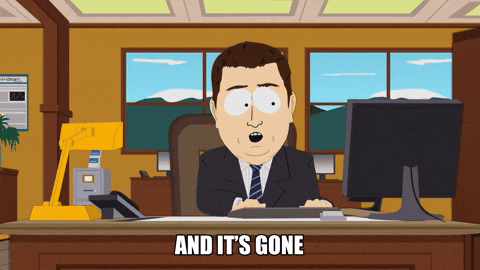Amazon, Amazon Music, and Audible, an Amazon-owned online audiobook and podcast service, have been flooded with bogus listings that push dubious “forex trading” sites, Telegram channels, and suspicious links claiming to offer pirated software.
Reminds me of the time I started learning about forex. I used a practice account to test an algorithm for recognizing short-term trends and trading on the activity. I ran a simulation for a few days to make sure it was working, and my fake $10,000 bankroll turned into $50,000 in less than a week. I was excited about the results, and went to explain it to someone with deeper pockets who might actually have $10k to invest, and in the time it took me to walk from my desk to his and back, it went to less than $600. Five minutes, $50k wiped out.
Needless to say, he didn’t invest and I stopped daydreaming about owning a yacht. Forex is gambling.
“I turned around to light my cigarette and when I turned back I had lost what I had in my account” - a friend of mine
Dang, that would have hurt with real money.
I always stick to mutual funds and ETFs. The few individual stocks I’ve picked on my own have always lost money. I lost $750 to Beyond Meat, and a couple thousand with BitCoin Cash (should have held it for another year, but hindsight etc.). My mutual fund picks have all gone up. Some more than others, but none have lost me money.
It hurt with fake money, because I thought I had discovered some big secret key. Like that movie Pi. And then it was gone. All the sucess, all the dreams of a 9-screen batcave-style computer station with financial tickers and shit. I realized that I had nothing, and I was foolish for thinking otherwise. Stung like a bitch.
But you’re right, safe investments are the smarter long-term play. I did make an extra paycheck on dogecoin once on a moonshot. But otherwise, my boring retirement funds are all steadily beating inflation by a few percentage points. Why fight the tide?
The thing to remember about investing (forex or otherwise) is that it’s an enormous global industry. One of the largest and richest there is. If you’re a normal person, with a normal day job, tinkering around in the evening trying to pick stocks or write algorithms, just remember that there are countless thousands of professional, experienced, trained analysts all over the world doing the exact same thing 40 hours a week, week in week out.
There are no easy bucks to be made. If it was easy, it’d already be done.
Isn’t forex just foreign currency trading? I don’t understand how a foreign currency could be worth 50000USD one minute and only 600USD 5 minutes later unless it was a country with hyperinflation.
It is, but forex markets allow traders to trade on significant margin. Meaning, if I have $100, I might be able to buy $1,000 worth of foreign currency (a 1:10 margin) and if the value of the currency increases 1% ($100) you get 10% of the profit, which is 10% of your investment. If the position increases by 10%, you double your money. However, this also means that if the value drops by 10%, your money is gone.
Now consider that forex traders often leverage at 1:500 margins. You get to buy massive positions with currency pairs, and even the tiniest fluctuations can provide massive profits or instantaneous ruin.
The algorithm I used monitored recurring micro-patterns, watching for predictable movements. You’re also watching relative value pairs, rather than just an absolute market value. Both sides of a currency pair have nations vying to improve the value of their own currency, so you can make money (or lose money) on either side of the pair. Dollar is low against the yen, buy dollars with yen. Yen drops against the dollar, sell your positions. Euro drops against the yen, go pick up Euros agains the yen, and feel confident that Japan is already trying to strengthen the yen (simplified example, because it’s way more complex than that).
So if you track currencies across all currency pairs, you can find inconsistencies. I called it “torque” 15 years ago, but I’m sure a proper forex trader can give you an actual name for it. These are areas where three or more currencies are out of alignment, like if the dollar is up against the yen but down against the euro, and the yen is up against the euro. These are situations where you would expect the market to equalize in one direction or the other, and the trick was being able to predict which way it would go.
And I thought I had figured that out. I had not figured that out. I had gotten lucky several times in a row. In fact, the market can tolerate that sort of incongruity, and the market forces on various positions are far more complicated. And because you’re leveraged, if you bet big, even small swings in the wrong direction can wipe you out.
And because your leveraged, if the position dips, you can’t just hold it hoping it will bounce back. Once the loss in value reaches your investment, the position automatically closes and you’ve lost everything you put in. It doesn’t matter if it bounces all the way back up, because you no longer own it.
Now consider that forex traders often leverage at 1:500 margins. You get to buy massive positions with currency pairs, and even the tiniest fluctuations can provide massive profits or instantaneous ruin.
Yikes. I would have never considered that doing this would be anything more than a wild gamble. It is a good thing that you only lost pretend money.
Serves Amazon right for not keeping their house clean.
They didn’t care that their clients threw food on the ground cause they were bringning in lots of money, and now they have rats. Go figure.
When I was in middle school I thought “warez” was pronounced “juárez.” I’m not a smart man.
Well TIL.
Warez is a plural of ware if anyone else didn’t catch on.You’re not alone.
I know the correct pronunciation, but it will always be ware-ez to me.
We used to troll other kids by telling them that 🤣🤣🤣








